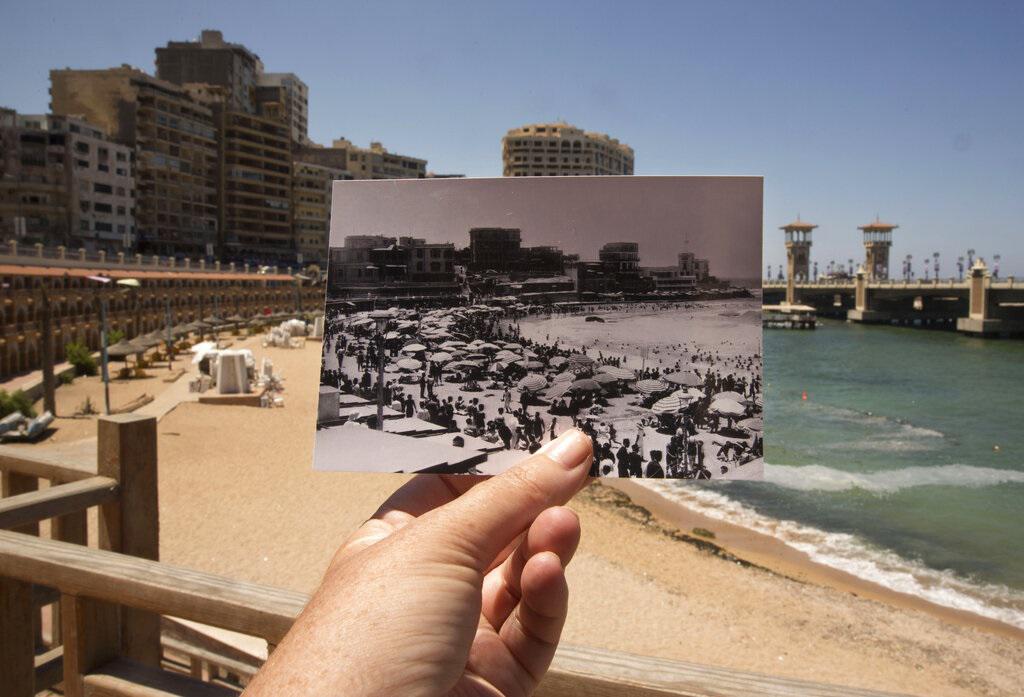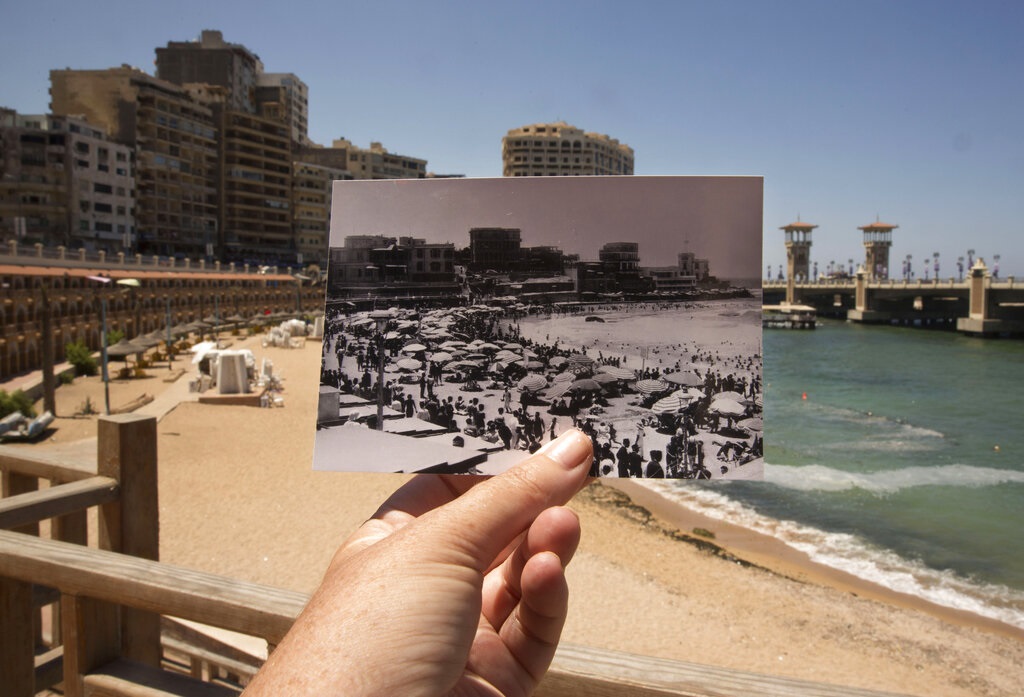Alexandria battles climate change
CAIRO - Environmental engineers are working on a project to protect the 15th-century Citadel of Qaitbay, which is on a stretch of land extending into the ancient port of Egypt’s northern city of Alexandria.
Egyptian authorities are investing $14 million in the project, which involves dropping 4,700 concrete blocks of various sizes and weights around the fortress to protect it from waves that threaten to destroy it in a matter of years.
Thousands of trucks have shuttled between Cairo and Alexandria, carrying 40,000 tonnes of concrete.
Qaitbay is at the forefront of Alexandria’s battle against climate change. It was constructed almost half a millennium ago to protect the city against foreign invaders. It needs protection, as do all of Alexandria and its population of 5 million, now from climate change-induced rise in the sea level and shifting weather conditions.
“This rise will have adverse effects on Alexandria and other coastal cities,” said Saber Osman, the head of the Department for Adaptation with Climate Change at the Ministry of Environmental Affairs. “It will affect everything in the city from economic activities to the long-term possibility of inundation.”
Egypt has 3,000km of coastline but that is not the only place the effects of climate change are felt. Farmers in other parts of Egypt report a decline in productivity and crop loss because of rising temperatures.
The low-lying Nile Delta expects to be most prone to climate change-induced issues, including the possibility that there will be an altering switch in the nature of the delta’s soil and an increase of salinity. The worst scenario of inundation would displace millions of people.
That would be catastrophic for Egypt because the Nile Delta includes the country’s most fertile farmland, producing more than 50% of its food.
“Soil salinity is the most immediate effect from global warming in the Nile Delta,” said environmental expert Sayed Sabri. “It limits productivity, a big problem for Egypt, which struggles to feed its people.”
Egypt’s population growth outpaced its food production in the past two decades, the United Nations’ Food and Agriculture Organisation said. This makes the country increasingly dependent on imports, especially of basic crops such as wheat.
Residents of the coastal cities saw the ugly result of climate change in 2015 and 2018 when unprecedented heavy rains inundated hundreds of streets and homes and destroyed millions of dollars in private property. Several people died and hundreds of families were displaced.
“It was a painful experience,” said Sherif Farouk, a grocery store owner from Alexandria in his mid-40s. “Since then, everybody is afraid that such a tragedy will befall the city again.”
Environmentalists downplay the fears, attributing their calm to the location of the city above the sea. Other coastal cities, they say, including the Suez Canal city of Port Said, are in more peril.
The sea level rose an average of 1.8 millimetres annually until 1993, the Egyptian Ministry of Irrigation and Water Resources said. Over the following 20 years, the sea level average rise was 2.1 millimetres a year, it added, noting that the rise was 3.2 millimetres a year since 2012.
Qaitbay fortress is one of the ancient wonders in Alexandria. They are at the centre of work by authorities to shield the city against sea waves and the rising sea level.
Tens of thousands of concrete blocks and reinforcements have been dropped into the sea to keep the waves at bay and prevent coastal erosion. The city is also widening its beaches by dropping hundreds of tonnes of sand into the sea in another bid to mitigate erosion.
Osman’s department oversees a project for the protection of the coast in Alexandria. The project received $32 million in financing from the Green Climate Fund, a financial mechanism of the UN Framework Convention on Climate Change. It includes measures for the protection of the Port of Alexandria and marine life.
There is, however, concern over the environmental effects of the measures Egypt takes to protect its coasts. Despite their importance, some measures could negatively affect marine life, experts said.
“They will lead to a biological change in the sea,” said Suzan Kholeif, director of the Institute for Oceanography and Fisheries in Cairo. “We are badly in need of technical support from advanced nations that use more modern coast protection methods.”
Hassan Abdel Zaher is a Cairo-based contributor to The Arab Weekly.
This article was originally published in The Arab Weekly.







